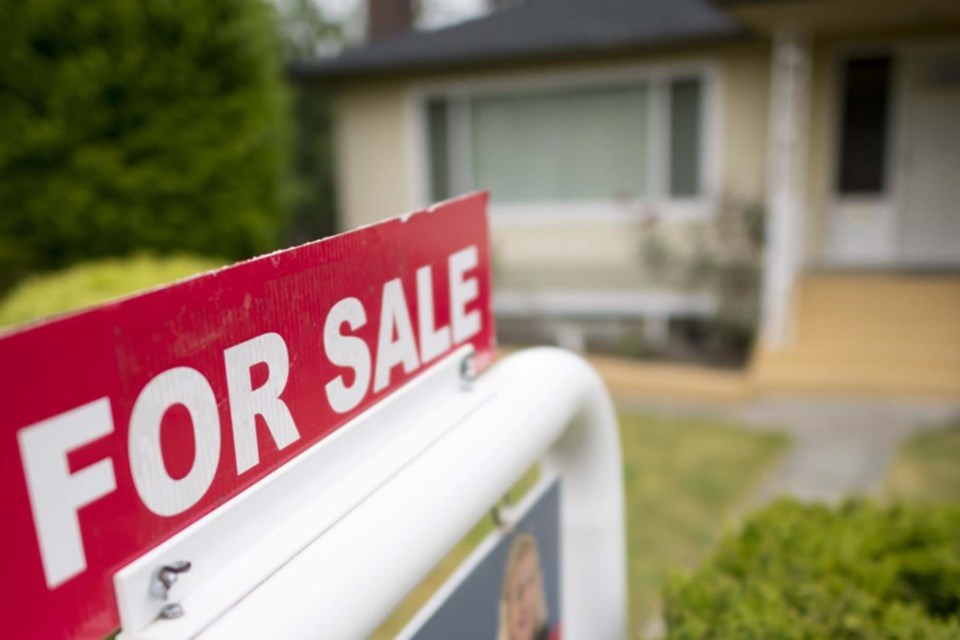Local real estate agents say the federal government's new two-year ban preventing some non-Canadians from purchasing homes will have a minimal impact in St. Albert, as foreign home ownership in the city is less than a fraction of a per cent.
Housing and Diversity and Inclusion Minister Ahmed Hussen said in a Dec. 21, 2022 news release the new rule is part of a strategy to make housing more affordable and reduce competition for Canadians and permanent residents buying homes. It came into effect on Jan. 1.
"Through this legislation, we’re taking action to ensure that housing is owned by Canadians, for the benefit of everyone who lives in this country," Hussen said.
"We will continue to do whatever we can to ensure that all residents of this country have a home that is affordable and that meets their needs.”
The local rate of residential foreign ownership is around 0.08 per cent, or 22 of the 27,489 residences that received tax assessments in May 2022 said Danelle Boivin, a spokesperson for the City of St. Albert.
Boivin said the city does not track where property owners live or their nationality, and the previously mentioned figure represents the primary mailing addresses of those property owners.
Ryan Boser, an agent with Sarasota Realty in St. Albert, told The Gazette he understands what the government is trying to accomplish but thinks the ban will mainly affect the Vancouver and Toronto markets, where rates of foreign ownership are more significant compared to a market like the Edmonton metropolitan area.
"When you have stuff like this put into place, it's not really meant for what we're dealing with specifically in Edmonton and and St. Albert," Boser said.
"We definitely do get some foreign buyers coming into our market but it's not to the same level of Vancouver and Toronto."
According to the most recent data available from the Canadian Housing Statistics program in 2020, the percentage of foreign-owned residential property in British Columbia is 4.7 per cent, while in Ontario, the rate of foreign ownership stands at 3.4 per cent.
Although the Canadian Housing Statistics program does not track foreign ownership in Alberta, the Edmonton Journal published an article in 2022 stating the rate of foreign ownership in the city is just 0.14 per cent. Likewise, an article in the Calgary Herald found the rate of foreign-owned residential property in that city was 0.2 per cent.
Doris Wyatt, an agent with Robertson Real Estate Group in St. Albert, said she thinks her team had just one foreign buyer out of about 300 total sales in 2022.
"In our specific St. Albert area market, that's pretty low," Wyatt said.
"Overall, I think [the ban] is good for one reason, and it's allowing Canadians, especially our young Canadians, the ability to purchase a property without these huge price increases, where our typical Canadian isn't able to afford it because our wages don't meet that demand," Wyatt said.
However, Wyatt said she thinks the gradual interest rate hikes last year had more effect on Canadians' ability to purchase houses than competition with foreign buyers.
Exemptions
Some people are exempted from the two-year ban, including foreign workers, diplomats, refugees, temporary residents, and others, although some of the exemptions have specific conditions.
The legislation says a foreign worker must have lived in Canada for three years prior to buying a home and international students must have lived in Canada for 244 days per year for the five years prior to buying a home.
Also excluded from the ban are certain types of property, such as "recreation homes" like cabins, cottages, and lake houses. As well, the ban only applies to property with three or fewer dwelling units, meaning foreign buyers are still able to purchases apartment buildings with more than three units.
The full list of exemptions and conditions can be found on the Canada Mortgage and Housing Corporation's website.
Penalties
Real estate agents who sell homes to foreign buyers during the two-year ban could face fines up to $10,000, which local RE/MAX broker Shandrie Lewis says has added to the workload for agents and home sellers in general.
"We've already had a new form of paperwork issued by the Canadian Real Estate Association. They sent out a new form that it's recommended that we use with buyers to verify that they are a resident," Lewis said in an interview.
"What I'm more concerned about is for sellers," Lewis said. "When a buyer purchases a property, and let's say there was no due diligence done by the buyer themselves or their agent, and they purchase the property, removed conditions, and then they go to close on it on possession date with the lawyer and it's discovered that they actually are in fact a non-resident, it puts that seller at risk."
"That's where I believe there's going to be issues," she said.
Lewis added that she also didn't think the ban will affect home prices moving forward, and it's possible the ban will prevent Canada from attracting highly skilled workers looking to move to the country.
"I don't view it as a positive in any way," she said. "I think it's going to actually prevent a lot of global talents from coming into Canada. It might make the reputation a little bit sour internationally."
"I don't really believe that this idea is going to solve much of an issue that I don't believe was one to begin with."



